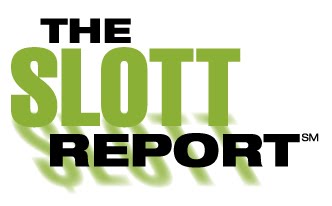Time to Get Technical...
The qualified charitable distribution was first effective in 2005 and expired as of 12/31/2007. It has been extended for 2008 and 2009. Originally, it was a way for an IRA owner to take all or part of their required minimum distribution (RMD) as a distribution payable to a qualifying charity. The distribution would not be included in the account owner’s income. It was a great way to move funds that the owner was required to take and pay taxes on to a tax exempt charity and no one had to pay any income tax.
This year, 2009, Congress did away with required minimum distributions. Charitable contributions are also down this year. Both of those situations are due to the current state of the economy. However, the QCD lives on, for this year. It is still a great way for an individual with IRA assets to transfer those funds to a charity without having to pay the income tax on the distribution.
Some of the requirements are that the IRA owner must be 70 ½ at the time of the transfer, it must be a direct transfer to the charity, the QCD is capped at $100,000 per account owner per year, there is no charitable deduction, and the charitable substantiation rules apply. The benefits to the IRA owner are that taxable assets are removed from the estate at no tax cost, the gift to charity does not increase income for the year, and you get the same tax benefit whether or not you itemize deductions.
If you are over 70 ½ and are going to give money to charity anyway this year, give the funds from your IRA. For more information, contact your advisor or contact one of the Ed Slott trained advisors listed on our website.
--By IRA Technical Consultant Beverly DeVeny and Jared Trexler
---------------------------------------------------------------------
Comment, Question, Discussion Topic on your mind? Click on the Blue Comment Link below and leave your thoughts then check back to see what other consumers and advisors think.
Quality content
- Siti Non Aams
- Nuovi Siti Casino
- Casino Non Aams Italia
- Casinos Not On Gamstop
- Casino Sites Not On Gamstop
- Online Casino
- UK Casino Not On Gamstop
- Sites Not On Gamstop
- Casino En Ligne
- Casino En Ligne Fiable
- Casinos Not On Gamstop
- UK Casino Not On Gamstop
- Casino Sites Not On Gamstop
- Non Gamstop Casinos UK
- Casino Online Non Aams
- Casino Not On Gamstop
- Meilleur Casino En Ligne France
- Casino Sites Not On Gamstop
- Non Gamstop Casino Sites UK
- Casino Sites UK Not On Gamstop
- UK Casino Not On Gamstop
- Meilleur Casino En Ligne Fiable
- Casino Online Non Aams
- Casino Non Aams
- Casino Non Aams
- Casino Sites Not On Gamstop
- Migliori Casino Non Aams
- Meilleur Casino En Ligne Belgique
- Lista Casino Online Non Aams
- Casino Non Aams
- オンカジ出金早い
- 안전한 파워볼사이트
- Meilleur Casino En Ligne 2026
- Meilleur Casino En Ligne 2026
- Meilleur Casino En Ligne
- Casino Senza Richiesta Documenti
- Nuovi Casino Italiani
- Casino Online France
- Casino En Ligne

1 comments:
I made a QCD to a qualified organization from my IRA at Fidelity Investments. The 1099-R from Fidelity shows me as a recipient, and my SS no. as the recipients ID. Fidelity claims that is correct. How will the IRS know that the check went to the charity (which it did)? Is the 1099-R wrong?
Post a Comment